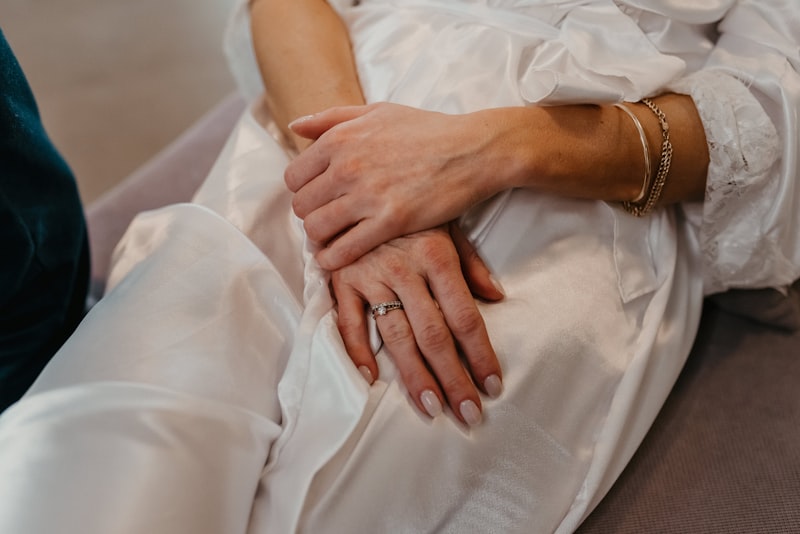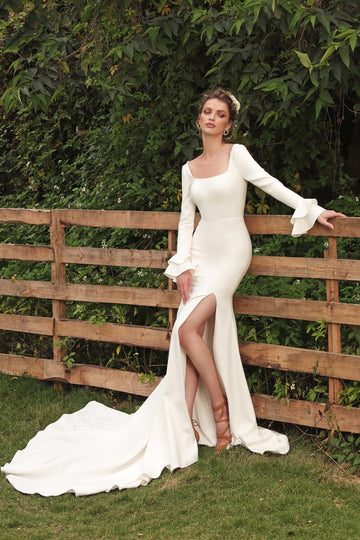Exploring Fabric Treatments in Bridal Fashion: A Complete Guide
Exploring Fabric Treatments in Bridal Fashion: A Complete Guide
Bridal fashion has undergone significant transformations over the years, with various fabric treatments taking center stage in creating stunning wedding dresses. Understanding the nuances of fabric treatments can help brides make informed choices for their big day. In this article, we will delve into different fabric treatments used in bridal fashion, their unique characteristics, and how they can elevate the overall aesthetic of a wedding gown.
Understanding Fabric Treatments
Fabric treatments refer to various processes and techniques applied to fabrics to enhance their appearance, texture, and durability. In bridal fashion, these treatments play a crucial role in achieving the desired look and feel of a wedding gown. Let's explore some common fabric treatments used in bridal fashion.
1. Embroidery
Embroidery adds intricate designs and patterns to bridal gowns, enhancing their beauty and elegance. This treatment often involves hand stitching or machine sewing using threads of varying colors, textures, and thicknesses. Popular embroidery techniques include:
| Technique | Description |
| Hand Embroidery | Delicate and personalized; often used for custom designs. |
| Machine Embroidery | More uniform and consistent, allowing for intricate designs in less time. |
| 3D Embroidery | Involves layering fabrics to create a three-dimensional effect. |
2. Lace Treatments
Lace is a classic choice for bridal gowns, contributing to a romantic and timeless aesthetic. Lace can be applied to various parts of the gown, including sleeves, bodices, and skirts. Different types of lace treatments include:
| Type of Lace | Description |
| Chantilly Lace | Delicate and lightweight with intricate floral patterns. |
| Alençon Lace | Characterized by a floral pattern with a heavier, outlined effect. |
| Venise Lace | Thicker and textured, this lace is often used for added dimension. |
3. Crystal and Beading Accents
Crystal and beading accents are used to add sparkle and glamour to bridal gowns. These embellishments can be incorporated into various parts of the dress, such as the neckline, waistline, or along the hem. The application of crystals and beads not only enhances the visual appeal but also reflects light beautifully, creating a radiant effect.
4. Fabric Printing
Fabric printing is an innovative treatment that allows designers to create unique patterns and colors directly onto the fabric. This technique can be used to design custom bridal gowns that reflect the bride's personality and wedding theme. Options for fabric printing include:
| Printing Technique | Description |
| Digital Printing | Allows for high-resolution designs and endless color options. |
| Screen Printing | A more traditional method that uses stencils to create designs. |
| Heat Transfer Printing | Involves transferring designs onto fabric using heat. |
5. Pleating and Draping
Pleating and draping are fabric treatments that create texture and movement in a bridal gown. These techniques can enhance the structure of the dress and provide flattering silhouettes. Different styles include:
- Box pleats for a structured look.
- Soft draping for a romantic fluid effect.
- Asymmetrical pleating for a modern twist.
Choosing the Right Fabric Treatments
When choosing fabric treatments for a bridal gown, several factors should be considered:
- Body Type: Certain treatments can enhance or downplay specific body features, so it's crucial to understand the impact of each treatment.
- Wedding Theme: The style of fabric treatments should align with the overall wedding theme, whether it's rustic, traditional, or modern.
- Season: Fabrics and treatments suited for summer might differ from those ideal for winter weddings, affecting the comfort and aesthetic appeal.
Popular Bridal Fabric Treatments in Different Regions
Different cultures may have distinct preferences for bridal fabric treatments. For instance, in regions such as India, intricate embroidery and mirror work are prevalent, while in Western countries, lace and satin are more common. Understanding these regional differences can influence the choices brides make regarding their wedding gowns.
The Future of Fabric Treatments in Bridal Fashion
As fashion evolves, so do fabric treatments in bridal wear. Innovations such as sustainable fabrics and digital printing are gaining traction, appealing to modern brides who prioritize eco-friendliness without compromising on style. Expect to see more creative implementations of fabric treatments that push the boundaries of traditional bridal fashion.
Conclusion
Exploring fabric treatments in bridal fashion reveals a captivating world of creativity and artistry. From embroidery and lace to modern printing techniques, each treatment offers unique characteristics that can enhance a gown's beauty and suitability for the bride. When selecting treatments, consider body type, wedding theme, and seasonality to create a gown that genuinely reflects personal style. Remember, the journey to finding the perfect wedding dress is as significant as the day itself. Enjoy the process, and don’t hesitate to explore various options to find what feels right for you.

